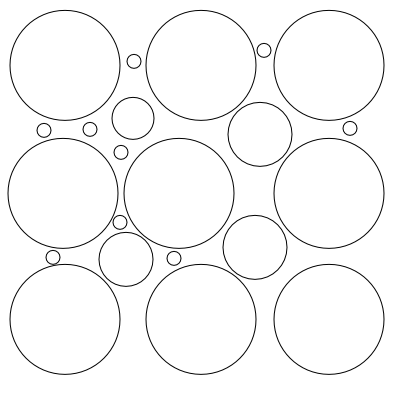Polydisperse
Polydispersity refers to the degree of non-uniformity or variability in size, shape, or mass of the particles or molecules in a mixture. In many systems, such as polymers, colloids, and suspensions, the components do not all have the same size or mass, leading to a distribution of these properties. The term is often used in the context of polymer science, where it describes the distribution of molecular weights (or sizes) in a polymer sample. Polydispersity is an important factor in determining the physical properties of materials, including their viscosity, melting point, and mechanical strength.
The polydispersity index (PDI) is a measure used to quantify the polydispersity of a sample. It is defined as the weight-average molecular weight divided by the number-average molecular weight. A PDI of 1 indicates a monodisperse sample, where all molecules have the same molecular weight. Values greater than 1 indicate polydispersity, with higher values signifying a broader distribution of molecular weights.
In the field of colloid science, polydispersity can affect the stability and behavior of colloidal suspensions. Particles with uniform size (monodisperse) tend to form more stable suspensions, while polydisperse suspensions may exhibit faster rates of sedimentation or aggregation.
Understanding and controlling polydispersity is crucial in many industrial applications, including the manufacture of plastics, pharmaceuticals, and cosmetics. Techniques such as gel permeation chromatography (GPC) and dynamic light scattering (DLS) are commonly used to measure the size distribution and polydispersity of particles and polymers.
Search WikiMD
Ad.Tired of being Overweight? Try W8MD's physician weight loss program.
Semaglutide (Ozempic / Wegovy and Tirzepatide (Mounjaro / Zepbound) available.
Advertise on WikiMD
|
WikiMD's Wellness Encyclopedia |
| Let Food Be Thy Medicine Medicine Thy Food - Hippocrates |
Translate this page: - East Asian
中文,
日本,
한국어,
South Asian
हिन्दी,
தமிழ்,
తెలుగు,
Urdu,
ಕನ್ನಡ,
Southeast Asian
Indonesian,
Vietnamese,
Thai,
မြန်မာဘာသာ,
বাংলা
European
español,
Deutsch,
français,
Greek,
português do Brasil,
polski,
română,
русский,
Nederlands,
norsk,
svenska,
suomi,
Italian
Middle Eastern & African
عربى,
Turkish,
Persian,
Hebrew,
Afrikaans,
isiZulu,
Kiswahili,
Other
Bulgarian,
Hungarian,
Czech,
Swedish,
മലയാളം,
मराठी,
ਪੰਜਾਬੀ,
ગુજરાતી,
Portuguese,
Ukrainian
Medical Disclaimer: WikiMD is not a substitute for professional medical advice. The information on WikiMD is provided as an information resource only, may be incorrect, outdated or misleading, and is not to be used or relied on for any diagnostic or treatment purposes. Please consult your health care provider before making any healthcare decisions or for guidance about a specific medical condition. WikiMD expressly disclaims responsibility, and shall have no liability, for any damages, loss, injury, or liability whatsoever suffered as a result of your reliance on the information contained in this site. By visiting this site you agree to the foregoing terms and conditions, which may from time to time be changed or supplemented by WikiMD. If you do not agree to the foregoing terms and conditions, you should not enter or use this site. See full disclaimer.
Credits:Most images are courtesy of Wikimedia commons, and templates Wikipedia, licensed under CC BY SA or similar.
Contributors: Prab R. Tumpati, MD

